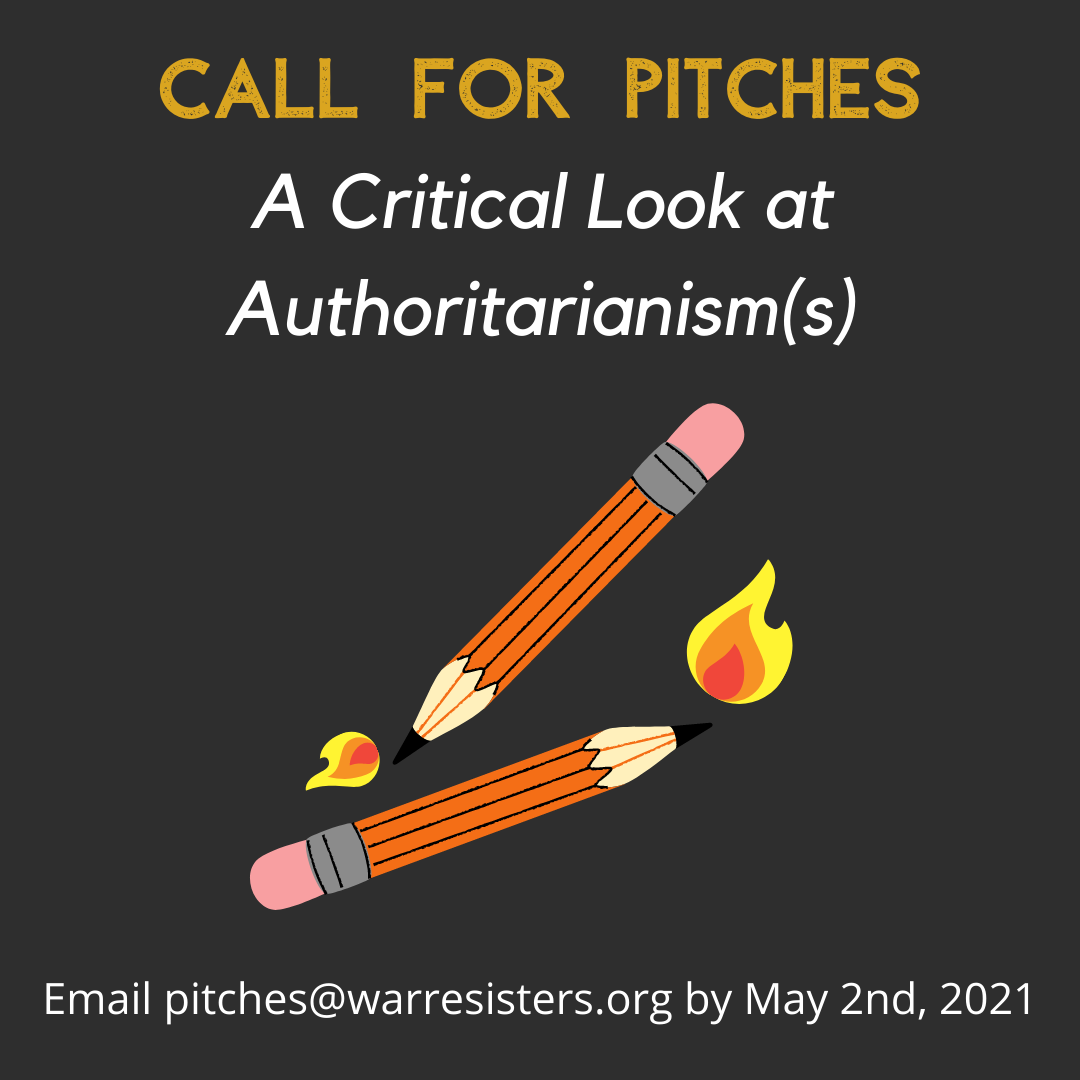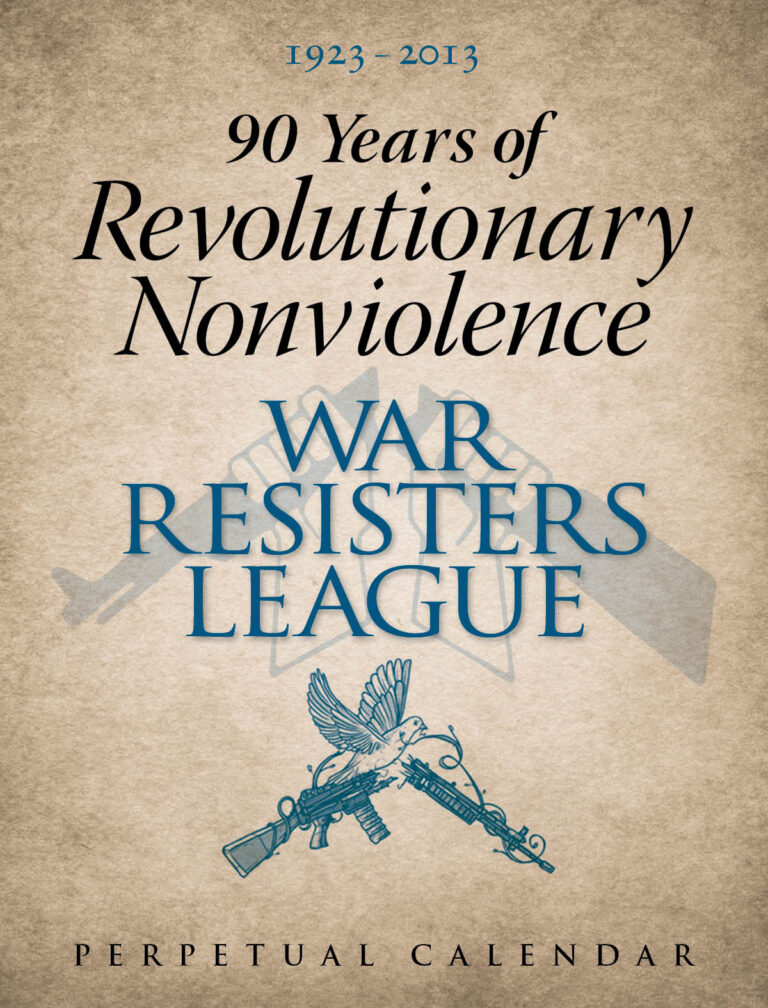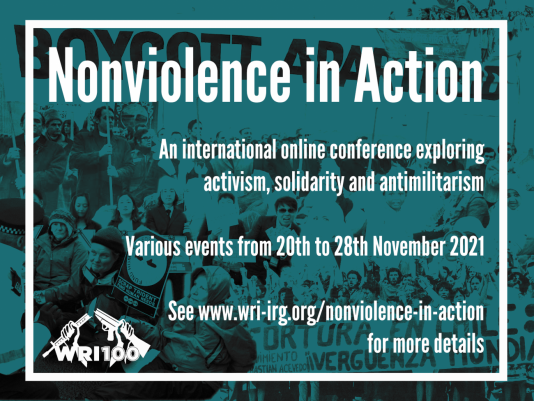Call for Pitches | A Critical Look at Authoritarianism(s)
Authoritarianism is a driving force of war, both at home and abroad. But what exactly is authoritarianism and what are the strategies to resist it? The War Resisters League’s Editorial Committee invites pitches for articles that can help us both amplify ongoing work resisting this political phenomenon and clarify opportunities for antiwar and antimilitarist movements to understand and organize against it.
When we sat down to discuss rising authoritarianism around the world, we quickly realized it would be helpful to think in the plural authoritarianisms to account for the myriad forms of authoritarianism. Authoritarianism can manifest itself through the state or through privately organized groups, under the banner of explicit fascism (such as the Golden Dawn in Greece or the Alternative for Germany), as counter-revolutionary forces (like Hezbollah, which worked against both the Syrian and Lebanese revolutions), and as reactionary forces (like the Sisi regime in Egypt). Authoritarians can come into power via a military coup like the one in 1973 that brought the long-ruling Pinochet regime into power in Chile. Some authoritarians are also monarchs, like Mohamad Bin Salman of Saudi Arabia but they can also be elected, like right-wing demagogue Donald Trump. Another category are those presidents who are “elected” in sham elections like Cameroon’s Paul Biya, who has been in power for over 45 years and is the world’s longest-ruling, non-royal politician. It is important to name this because there are false perceptions of who can be authoritarian and how they come into power—indeed, authoritarians and authoritative culture can exist under any political context.
A common thread between authoritarians is their commitment to holding onto and monopolizing power, and limiting political and social rights and freedoms to maintain it. To be anti-authoritarian, then, is to be concerned with sustainable models and practices of sharing power and democratizing all areas of life: politics, the economy, labor and the workplace, and social norms. Cultures that empower people to practice a variety of power-sharing models rooted in consent, collaboration, interdependence, ethics, and anti-violence are the best safeguarded against authoritarianism.
What elected authoritarianism shows us is that democracies are not immune to authoritarianism; therefore, it’s helpful to think of democracy then not as a static end goal, but rather as a dynamic continuum, with some political systems being more democratic and others being less so. For example, although it has formal institutions of representative democracy, the United States has yet to reckon with either its history and continued existence as a settler colony or its long history of enslaving Africans to build capital. This has translated to, among many other things, voter disenfranchisement of Black and Indigenous voters, thereby limiting their access to democratic processes and empowering the far-right in maintaining power. Across Abya Yala (also known as the Americas), Indigenous communities have varied power-sharing relations with the settler-colonial government. For example, Amazonia is home to nine tribal nations and spans multiple countries in South America, including Brazil and Colombia which exploit these communities for the resources on their land, deny their rights, and generally have a militarized presence in Amazonas (Amazonia is the entire region while multiple states refer to the part of Amazonia within their borders as Amazonas). Whether dealing with the center-right Liberal Party-led government in Canada (which is often described as having a paternalistic relationship with First Nations tribes) or the far right-wing Social Liberal Party in Brazil (whose president is openly anti-Indigenous and is threatening the existence of tribes in the Amazon), we have to be critical of the power-sharing models between settler colonies and Black and Indigenous communities and uplift self-determination struggles as part of our anti-authoritarian politics.
Since the election of Donald Trump in the United States, there was virtually an overnight-shift in English speaking, liberal media concerned about the rising trend of authoritarianism. There is indeed a trend of right-wing populism fueling the rise of authoritarians, like Viktor Orbán in Hungary, Jair Bolsonaro of Brazil, and Boris Johnson in the UK, among others. Before this moment, authoritarianism was seen as a problem endemic to parts of the non-European world. For example, during the 2011 MENA uprisings it was common to hear that people in the Middle East didn’t want or deserve democracy. Today, it’s hard not to draw connections between later anti-authoritarian struggles and the “Spring” of 2011. What’s important to notice is how these movements are dynamic and interact with each other: for example, pro-democracy organizers in Hong Kong shared tactics with protestors in Indonesia and Catalonia. When the people of Ferguson, Missouri took to the streets to protest Mike Brown’s murder by a police officer and faced off with tanks and special forces, activists in Palestine tweeted words of support and tips for dealing with tear gas. If consensually sharing power is at the core of anti-authoritarianism, then police, prisons, and the military are inherently tools of authoritarianism, and the abolition of these structures present a strategic organizing point that can unite the visions of multiple liberation struggles. We look forward to your reading your ideas.
Want to join the conversation? We are looking for 800-1,000 words responding to any of the questions above, particularly from folks directly impacted by war and militarism. In your pitch, tell us a little bit about yourself and whether you are directly or indirectly* impacted by war and militarism. Successful pitches clearly outline the ideas to be explored or arguments made in the piece: read more about our pitching guidelines here. We are able to select a limited number of pitches per month that we can compensate for publication. If selected, writers will be compensated $200. If you are interested in publishing with us regardless of compensation, please indicate so in your pitch. Send us your pitch to pitches [at] warresisters.org by Sunday May 2nd, 2021. Pitches accepted on a rolling basis.
*We consider everyone to be either directly or indirectly impacted by war and militarism, as there is no one who isn’t touched by or part of the war machine. For example, if someone pays taxes in the United States, they are indirectly impacted by war through income taxes going to fund the Pentagon.
Share






